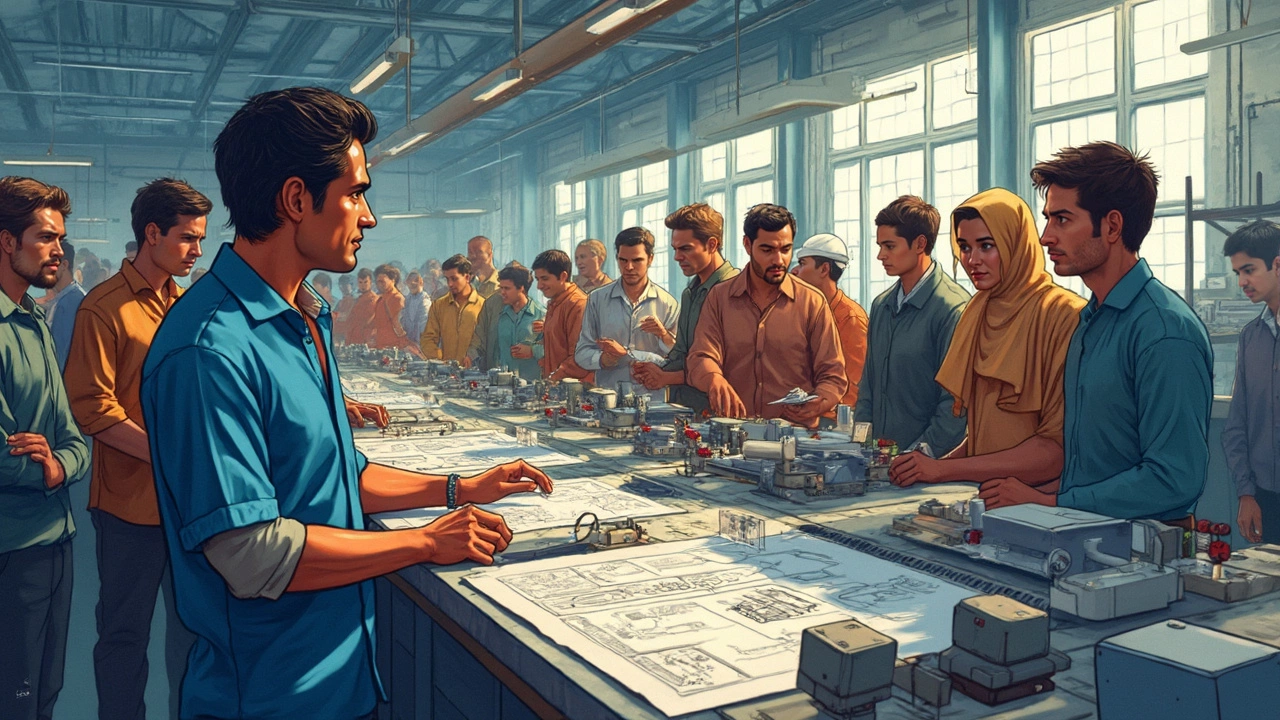Types of Manufacturers: What They Do and Why It Matters
If you’re curious about who makes the stuff we use every day, you’re in the right place. Manufacturers aren’t a single group – they range from giant auto plants to tiny cottage workshops. Understanding the different types helps you spot opportunities, choose suppliers, or even start your own business.
Big‑Scale Manufacturers
The most visible manufacturers are the ones that move millions of units a year. Think of car makers in Germany, Japan, or the US – they invest in massive factories, robotics, and strict quality checks. In India, the auto sector is booming, and the same principle applies to pharma labs, chemical plants, and large‑scale plastic converters.
For example, the Top 10 Pharma Labs in India (2025) article lists firms that run multi‑billion‑rupee operations, employ thousands, and export worldwide. These labs need heavy equipment, R&D teams, and compliance with US FDA standards. Similarly, large plastic manufacturers source raw polymers in bulk, as explained in the "How Manufacturers Source Plastic Raw Materials" piece. They negotiate with global suppliers, manage huge inventories, and run injection‑molding lines that churn out thousands of parts daily.
Textile giants also fall into this category. The "Largest Textile City in India" post points out Surat, where thousands of looms produce fabric for global brands. The scale of production lets them negotiate lower cotton prices and ship bulk orders efficiently.
Small‑Scale & Niche Makers
On the other end of the spectrum are micro‑manufacturers, cottage industries, and job shops. These businesses focus on low volumes, high customization, or specialized materials. The "What Is Small‑Scale Manufacturing Called?" article breaks down terms like micro, small‑batch, and job shop, showing how they differ from big factories.
Consider a small plastic recycler that turns PET bottles into new containers. They operate a single line, serve local markets, and often prioritize sustainability over volume. Or a family‑run textile workshop in a town outside Surat that makes handcrafted scarves for boutique stores. Their advantage is flexibility – they can switch designs quickly and respond to niche trends.
Even in high‑tech fields, small players matter. A startup building custom processing units (CPU, TPU) may start in a modest lab but can attract big contracts once they prove a reliable prototype. The "Understanding Processing Units" post illustrates how even a single engineer can design a chip that fits a specific market need.
Why does this distinction help you? If you’re looking for a supplier, big manufacturers offer consistency and scale, but they may have higher minimum orders. Small makers provide fast turn‑around and tailor‑made solutions, often at a lower entry cost. Knowing which type fits your project saves time and money.
India’s manufacturing landscape reflects both ends. Government schemes highlighted in "Manufacturing’s Impact" aim to boost large‑scale plants while also nurturing MSMEs (micro, small, medium enterprises). The result is a mixed ecosystem where a car part can be forged in a multinational plant, then finished in a local workshop before reaching the consumer.
Bottom line: Types of manufacturers range from global giants producing millions of units to niche artisans crafting a handful each day. Identify your needs, match them to the right segment, and you’ll navigate India’s vibrant manufacturing sector with confidence.

Understanding the 3 Main Types of Manufacturers: OEM, ODM, and Contract Manufacturers
Get the real scoop on OEM, ODM, and contract manufacturers. Learn what makes them different, when to pick each, and how the right type can make or break your product.
Read More